Eco-Challenge Fiji 02 - The Night Before
Eco-Challenge Fiji:
World’s Toughest Race
Sunday, September 8th - Monday, September 9th
Spoilers: None
The night before Eco-Challenge Fiji competitors departed the hotel for the race start, there was a huge opening ceremony to open the race. Bear Grylls and Mark Burnett spoke—the excitement from competitors and crew alike was electric. Competitors were given a safety brief and told that the Eco-Challenge Fiji medical team could pull competitors off of the course if they felt the athletes were endangering ourselves. Eco-Challenge Fiji medical director Dr. Joe Rowles mentioned some diseases that may preclude us from continuing on--Dengue fever being one of them.
It was at that point that Spangler, the emergency room physician on Team US Military, informed his teammates that he would let them know if anyone on the team needed to get the Eco-Challenge Fiji medical team involved. “You only get fever and chills from Dengue fever, and there is nothing you can do about it. You usually don’t die from it so we are continuing the race if anyone gets it.” His teammates knew where Spangler stood about finishing the race, and they were all okay with it.
Teams were given a pre-race briefing followed by a social on the beach. It was a spectacular and appropriate send off for the twelve-day adventure that was The World’s Toughest Race: Eco-Challenge Fiji.
The next morning teams woke up early and drove from Nadi to Suva, the capital of Fiji on the opposite side of the island. Team US Military arrived at the pre-race camp, which was at a small school just outside Suva. The team had a great spot behind the school next to Team OutThere. Joshua spent most of the afternoon harassing six-time world champion Mike Kloser about his new OutThere pack.
Team US Military arrived at the pre-race camp, which was at a small school just outside Suva. The team had a great spot behind the school next to Team OutThere. Joshua spent most of the afternoon harassing six-time world champion Mike Kloser…
That night, the (second) opening ceremony proved to be even more amazing than the first. The master of ceremonies for the Eco-Challenge Fiji pre-race ceremonies introduced some teams and kicked off native Fijian dancing and ceremonies. There were hundreds of locals in attendance, very excited for the event that had taken over their island for the better part of a month. Everyone on the island knew about Eco-Challenge Fiji—all the villages that teams were to pass through had been briefed months in advance, and signs advertising the race had been placed everywhere on the mainland. The locals had been anticipating The World’s Toughest Race as much as the competitors had in the months prior, and Fijian support would be overwhelming throughout the event.
After the opening ceremony there was a huge feast—the Eco-Challenge production team had built a huge stage just for the event the night before, and proceeded to feed well over a thousand people—the competitors, the Eco-Challenge production team, and all the local villagers who had come to watch the opening ceremonies. It was a surreal start to what would prove to be the most incredible adventure imaginable.
Caitlin Thorn is a guest blogger here. Caitlin Thorn is an accomplished endurance athlete, with numerous accolades as a distance runner, Olympic and half-Ironman distance triathlete, and adventure racer. Caitlin is a Track and Field Division I NCAA All-American, with numerous finishes in the half-marathon and marathon distances. She has been adventure racing for three years and has earned podium finishes at over 6 races and qualified for the 2019 USARA National Championship. Caitlin enjoys world travel and hiking, and when not pursuing outdoor adventure she serves as an active duty officer and engineer in the U.S. Air Force.
Caitlin can be followed via Facebook @caitlin.aub











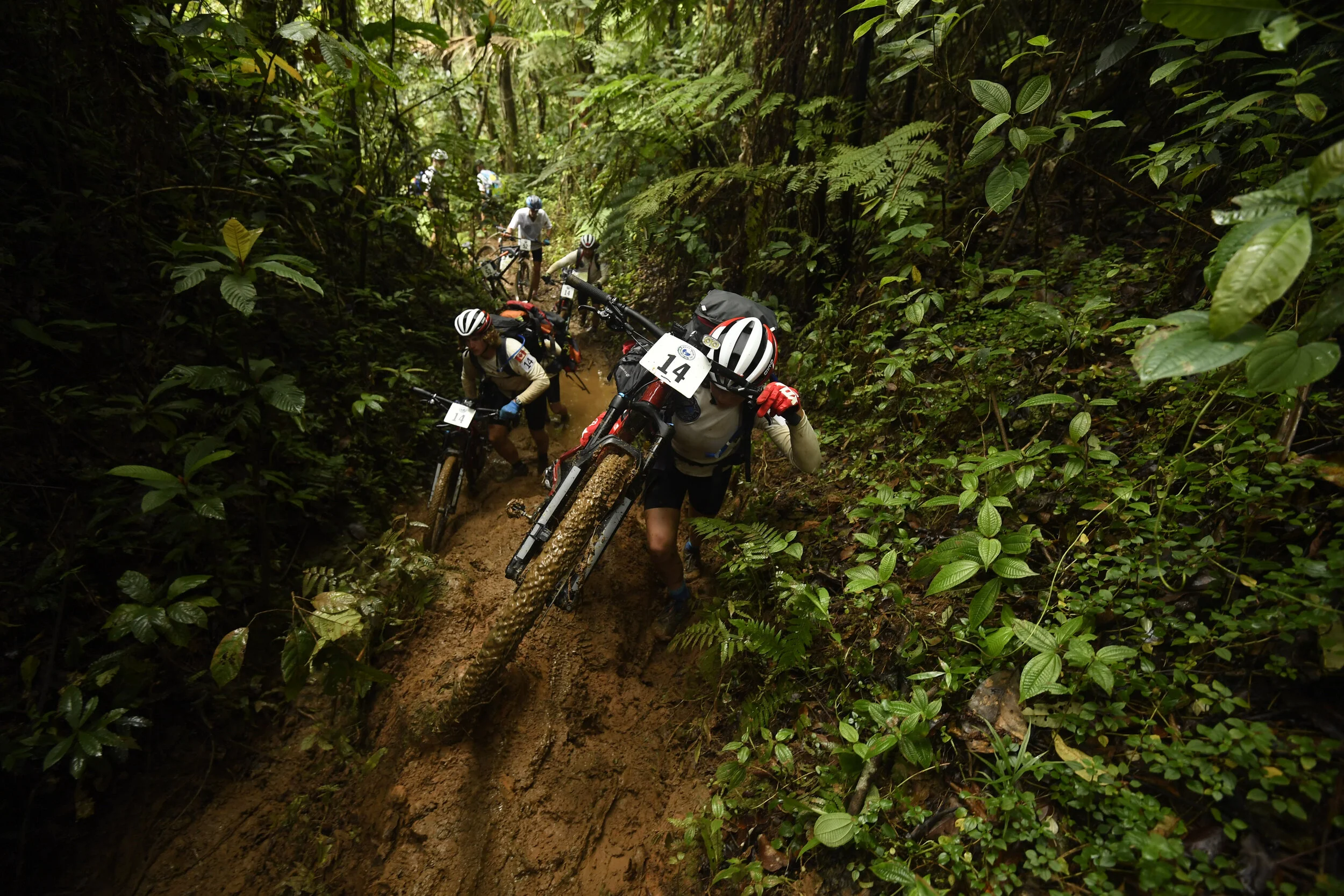



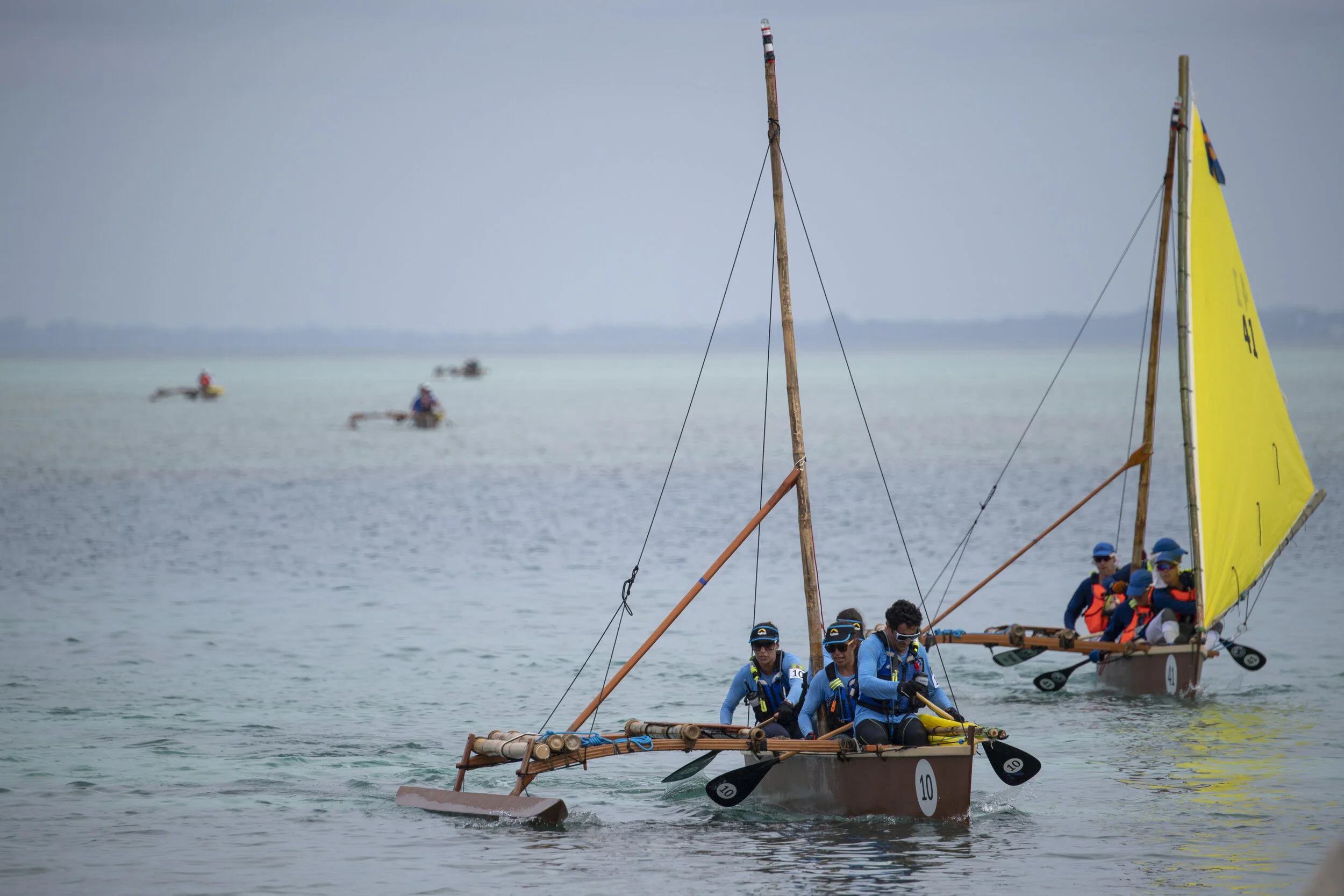
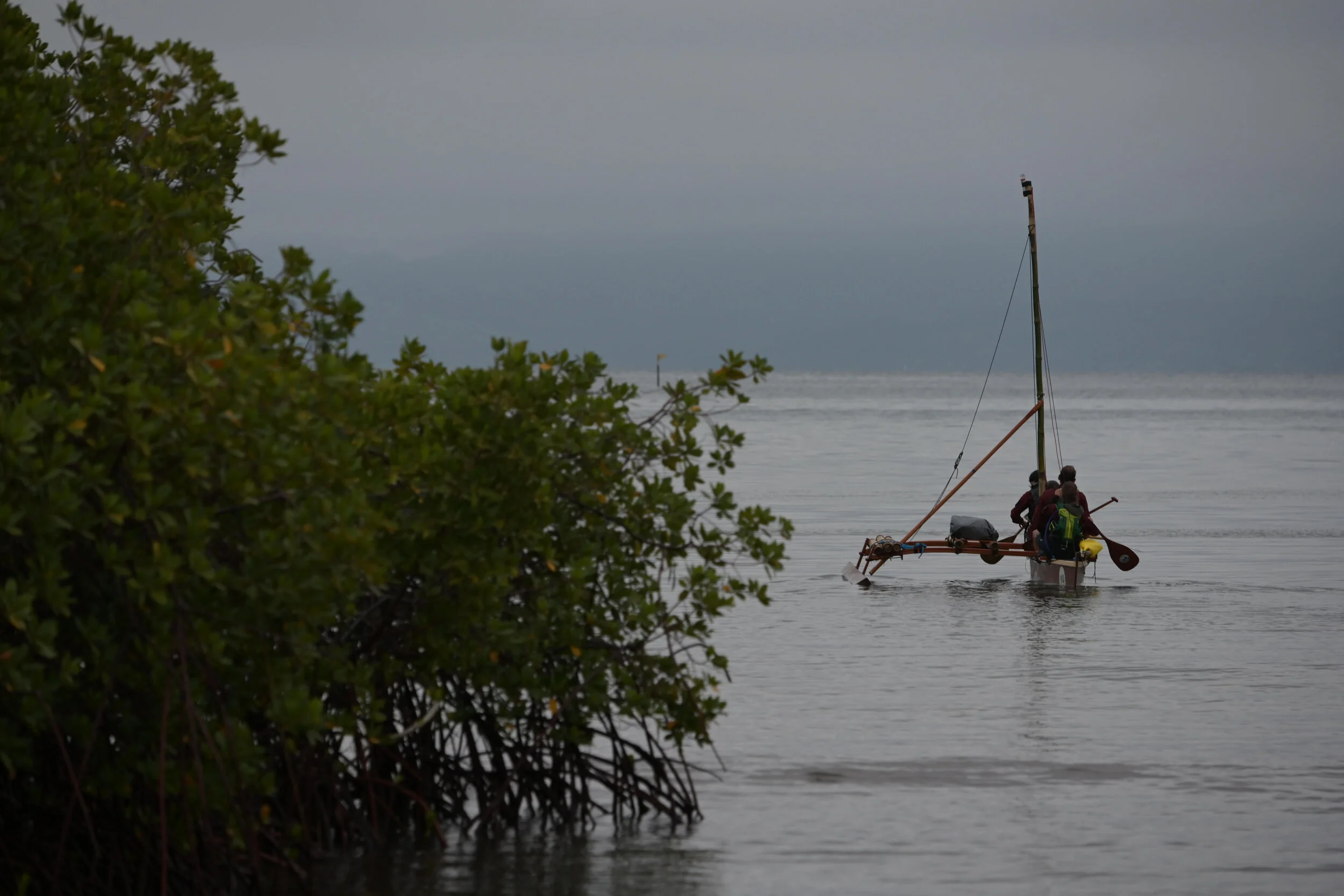
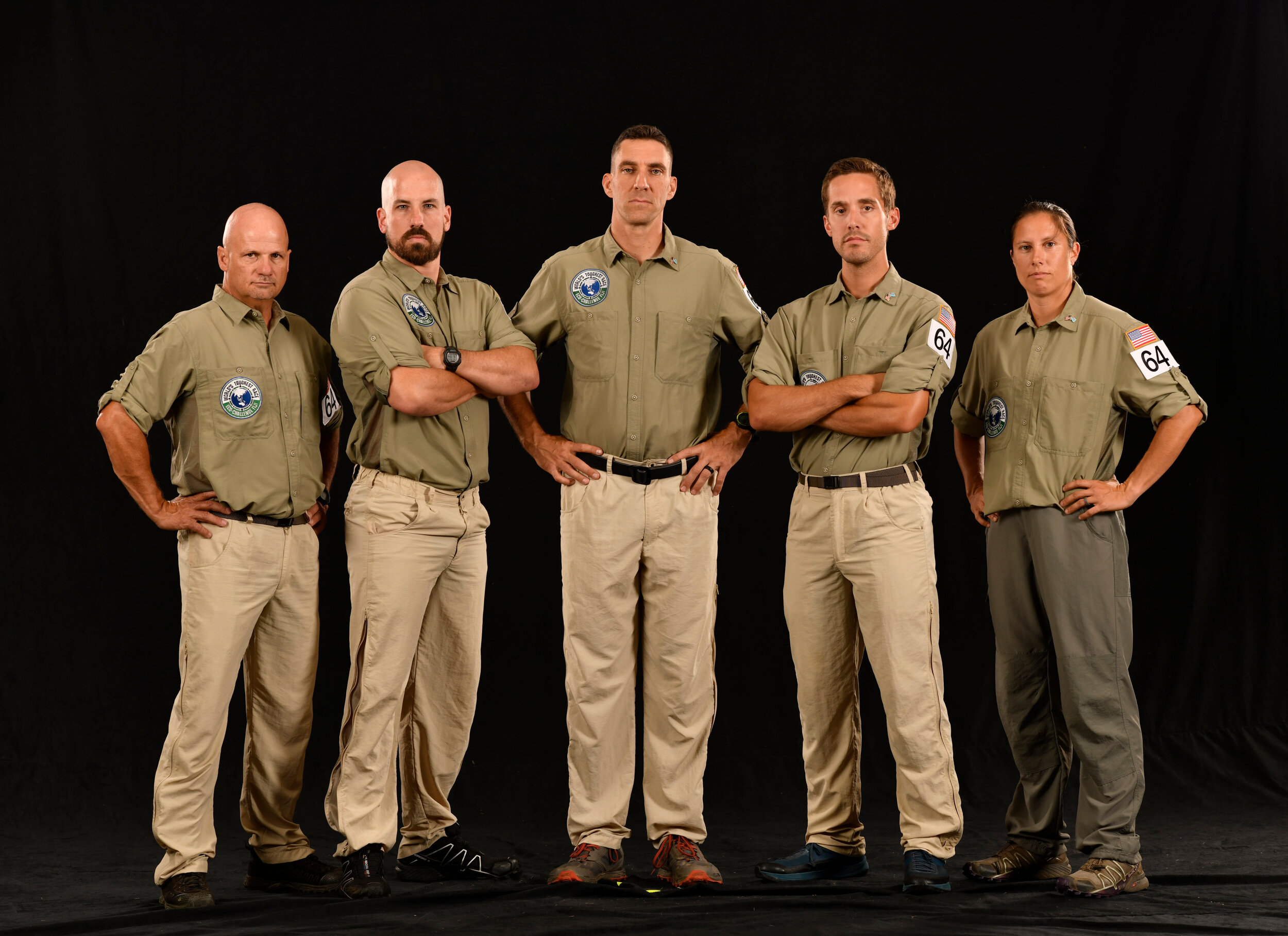

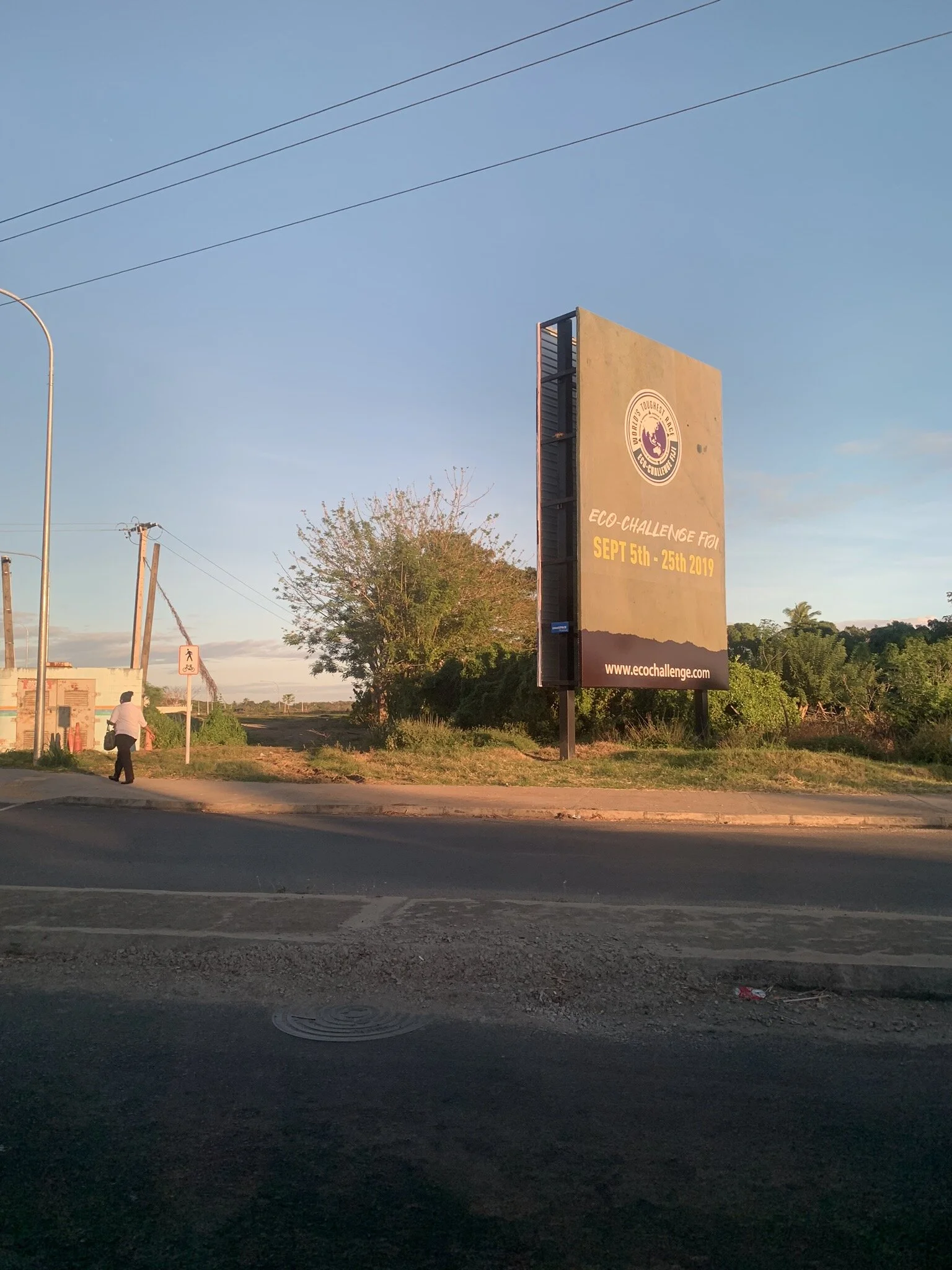
Eco-Challenge Fiji never promised to be an adventure race. Its claim was “The World’s Toughest Race”. Despite the lack of navigational challenges and jungle whacking (which was anticipated to be the hardest part of the race), Eco-Challenge Fiji was still the hardest race the members of Team US Military had ever done. The biking was tough, with incredible elevation gains and losses, and the weather added to the suck factor. This course tested the limits of racers’ mental capacity and their will to finish. Traveling across and along rocky rivers was tedious and broke some of the hardest people down. Continually slipping on rocks and banging up shins and feet tested the bounds of human fortitude and willpower.